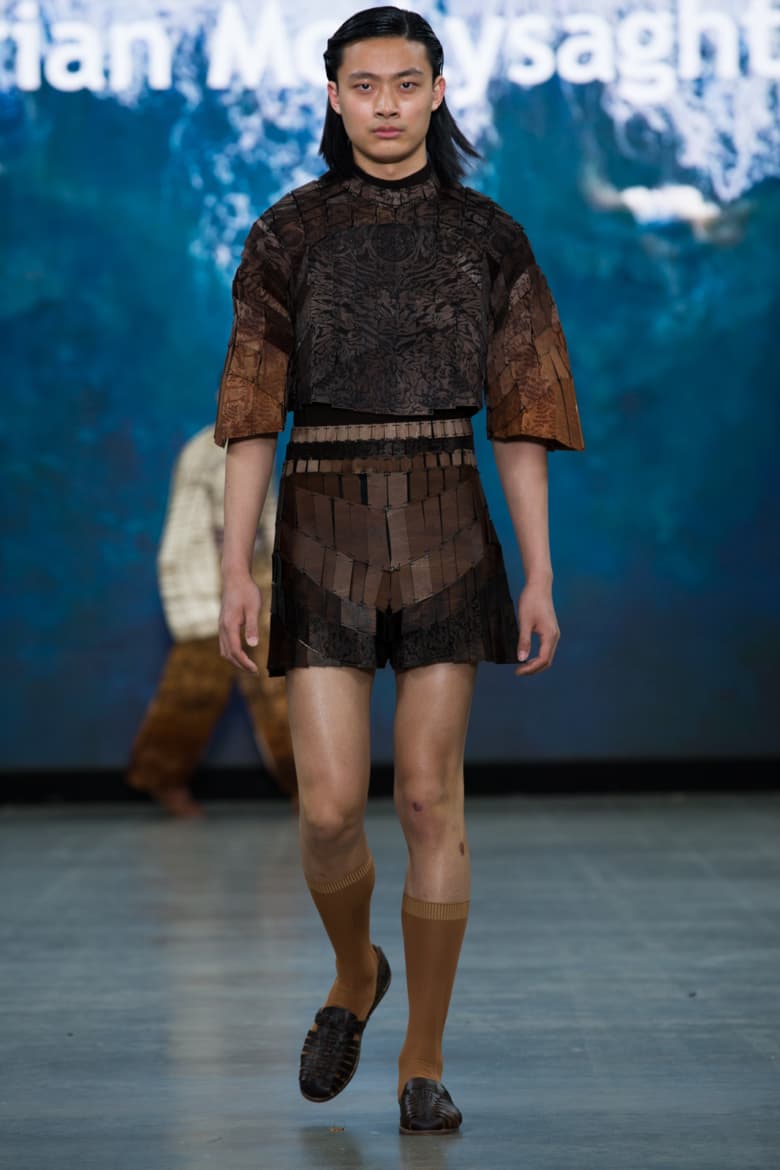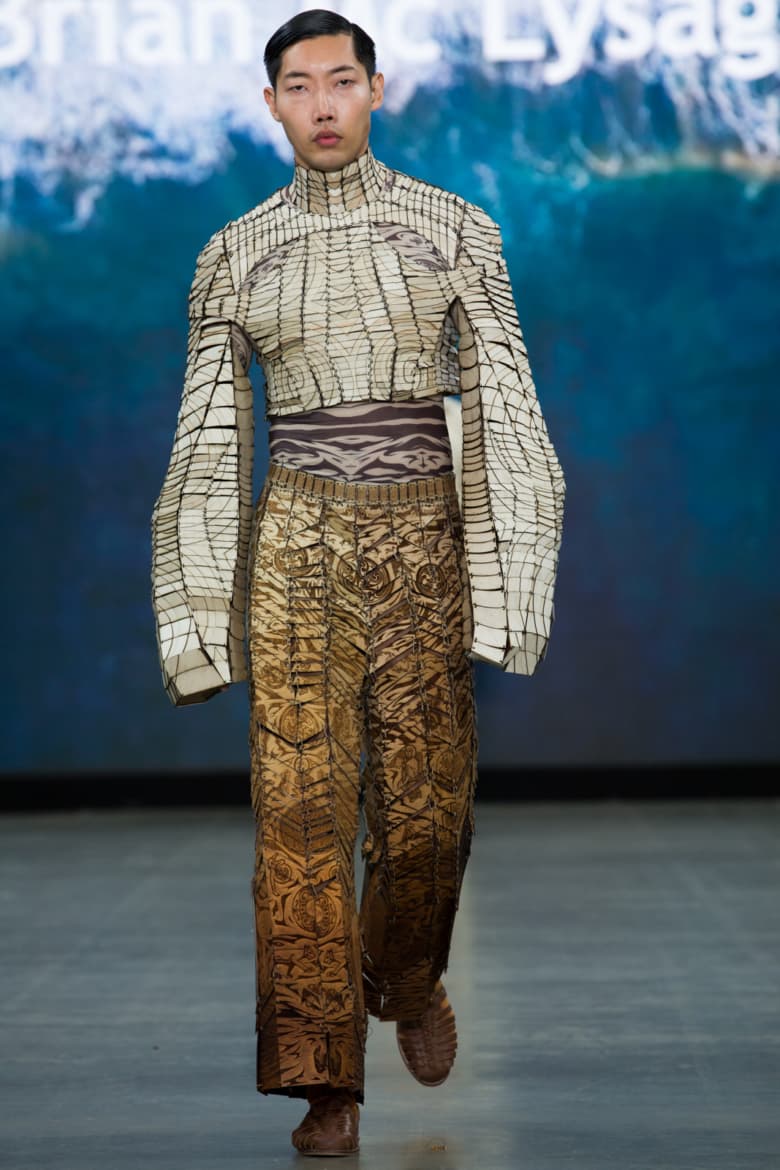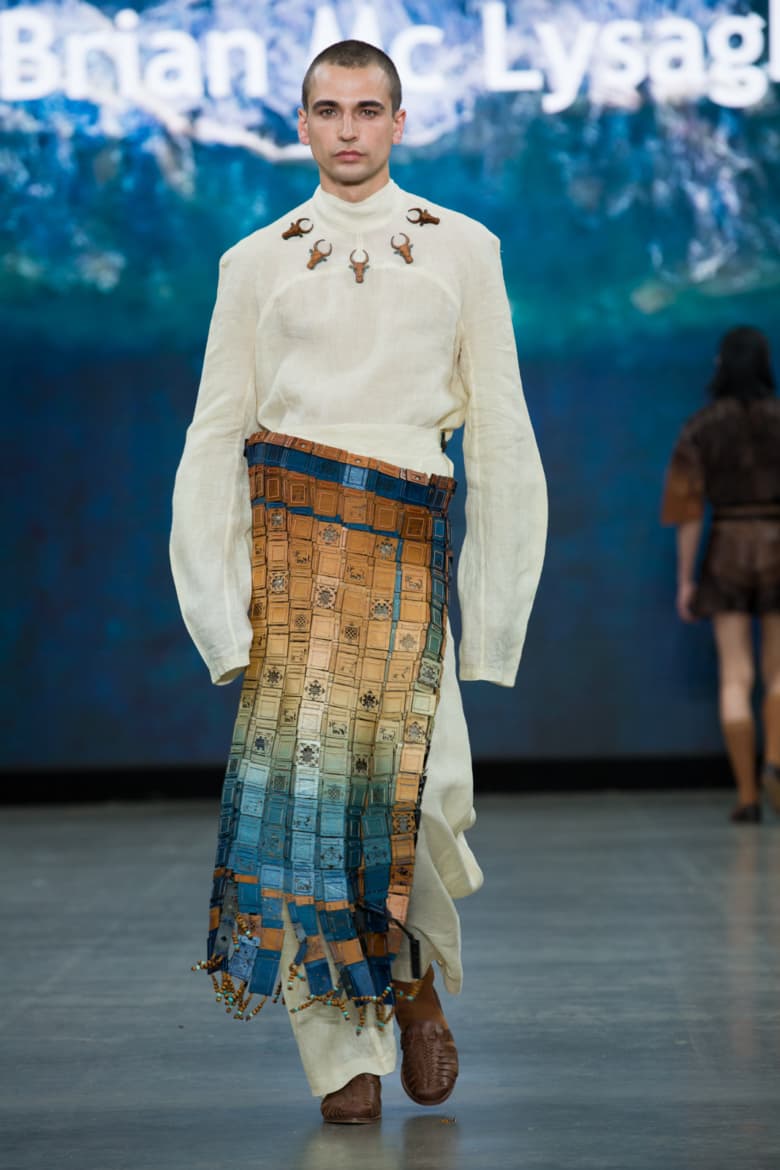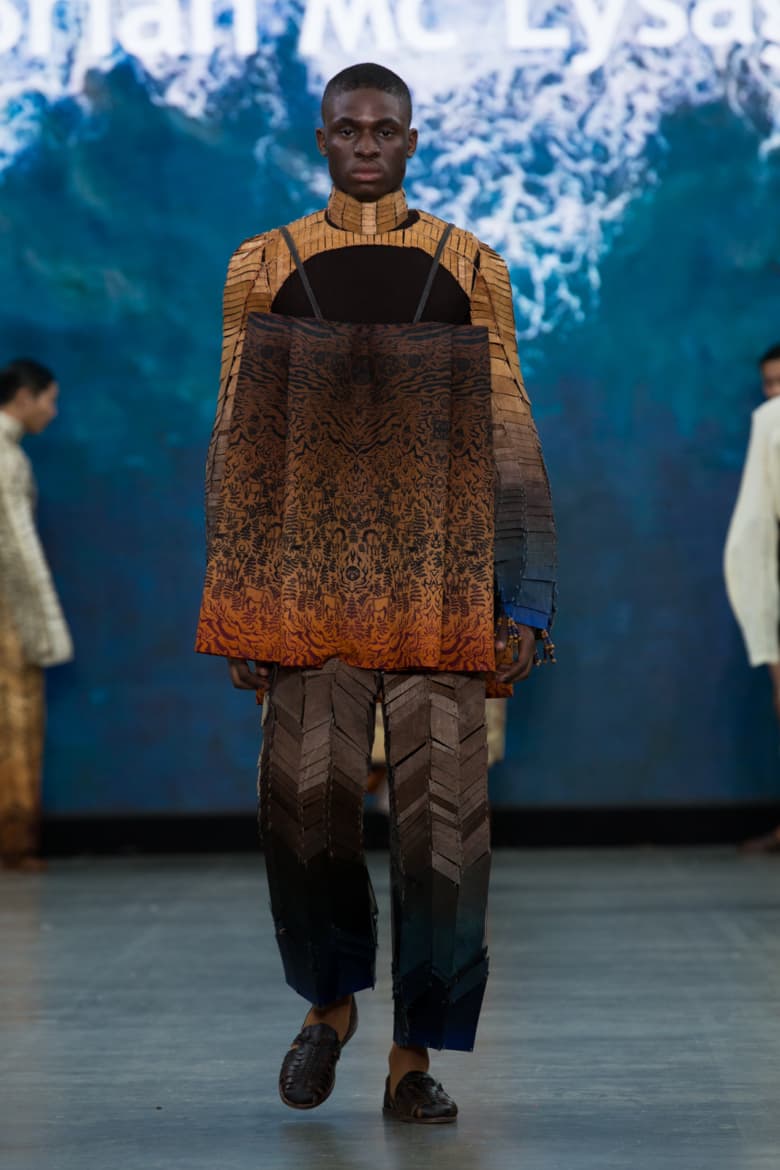Class of 2019: Brian Mc Lysaght is the designer to watch from GFW
Every year, Graduate Fashion Week opens the doors to hundreds of fashion graduates ready to show everyone what they’ve been working on. Over the last couple of decades, GFW has become the largest event of its kind and it’s safe to say that the charity is now the “global fashion industry’s leading employment platform for students, connecting thousands of international fashion graduates with potential employers.”
This year, the four-day event attracted more than 30,000 guests and showcased the work of over 5,000 fashion graduates from both national and international universities. Amongst the graduates, Brian Mc Lysaght from the Edinburgh College of Arts won the Christopher Bailey Collection of the Year Award, the Considered Design Award and the Hilary Alexander Trailblazer award.
Inspired by the role of clothing in 20th Century decolonisation movements, his collection was made from sustainable wooden textiles, paired with organic and recycled fabrics. Brian relied on locally available organic materials such as wood, leather and bone.
“The idea to work with wood came with about because I wanted to tackle the negative environmental impact of the fashion industry so I wanted to use organic and biodegradable materials that won’t end up as pollution and will return the bio-nutrients to the earth,” he explained recently. “I’m very interested in material culture, anthropology and museum artefacts so the idea of using local plant-based materials was really important.”
Interesting pieces in the collection include a wooden turtleneck, featuring patterns inspired by stone carvings or Neolithic tombs found across Ireland and wooden trousers stained with inks and laser etched with hand-drawn patterns inspired by illustrations from ancient Irish manuscripts.
“My aspiration is to work in sustainable, ethical design production and I’m very interested in how designers can work closely with supply chains and organise ethical supply chains. I studied with Anita Dongre in Mumbai who works with local artisans and employs rural women who otherwise wouldn’t have access to jobs or education. So, I’m interested in how fashion supply and production chains can become, instead of a site of exploitation, more regenerative systems. Instead of causing negative impacts on the world, they can be a force for good,” Brian added.







